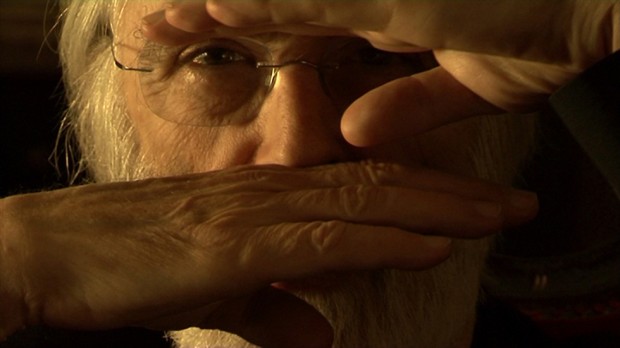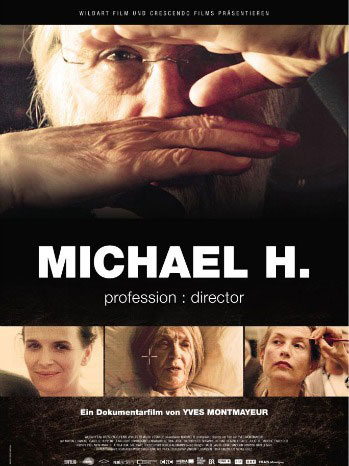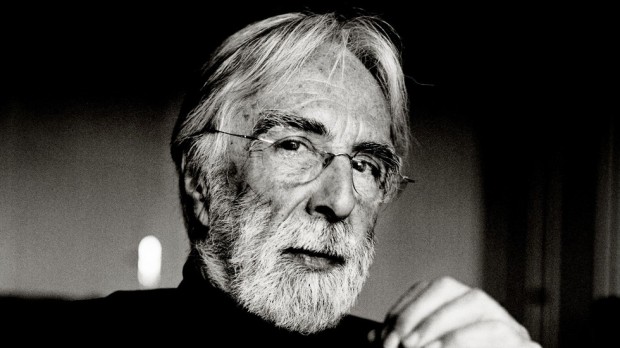It was no doubt a daunting task for French director Yves Montmayeur to tackle one of cinema’s most enigmatic and controversial filmmakers, Austrian born Michael Haneke. Over the past several decades, Haneke has distinguished himself as a looming and often times cynical figure in contemporary cinema, a modern day auteur with a rough edged aesthetic that reflects back the confusing brutality and violence in our society. Famously known for being tight lipped about his thematic intentions and generally never directly discussing his own work, Haneke has long been considered a shadowy presence in the landscape of brilliant filmmakers. For the first time ever, aside from an occasional DVD special feature, the curtain has been pulled back behind one of cinema’s most fascinating personalities and reveals the detailed process behind his incredibly powerful work. Michael H. Profession Director is an intriguing examination into the inner workings of a complex mind, that also proves to be the most comprehensive companion piece for any ardent Haneke fans.
Having shot behind the scenes making-of footage on several of his films already, Montmayeur had unparalleled access to Haneke both while directing and more candidly in interviews and conversations. Starting with his most recent work Amour, which won the Academy Award for Best Foreign Language Film, as well as the Palme D’Or in Cannes, the documentary’s structure moves backwards chronologically with each chapter focusing on the previous film in Haneke’s body of work (though, interestingly, the only film they skip over is the American remake of Funny Games). It’s a clever narrative gimmick that provides thought-provoking context for how Haneke has evolved as an artist, yet has remained true to his vision from his early beginnings. It’s also bizarre to see how Haneke appears to physically never age as we move backwards in time with his filmography, appearing almost always the same, in dark clothing, eyes hidden behind large spectacles and his iconic bone white beard.
In addition to loads of never before seen behind the scenes footage, there are a number of equally compelling interviews with actors and actresses who have had important roles in his films. From frequent collaborator Isabelle Huppert, who delightfully muses about the charming irony behind the directors bizarre comedic temperament, to Juliette Binoche who candidly admits she wishes Haneke would have more hope in his films. But perhaps the most revelatory information comes from the devil’s mouth himself, as he agonizes over having to explain his films at all. In interview, it’s almost as if Haneke is subtly reverse directing Montmayeur in avoiding certain questions and reframing their purpose. To Haneke, what’s essential is to erase the traces of where an idea originated rather than to fully explain them, so that when audiences watch a film they can absorb it purely and not have preconceived notions of intent. It’s captivating to see Haneke muse about himself and his work, while actually seeing him on set working brings to mind the excitement of a young child in a candy shop.

The major criticism one can levy against Michael H. Profession Director (other than that awkward title) is that those unfamiliar with Haneke’s films may want to steer clear of this documentary until becoming more familiar with his work. Montmayeur has made a conscious decision to show specific shocking clips, that if viewed for the first time could potentially ruin those moments when viewing them in context of the film. From the blood splatter in Cache, or the rewind scene in Funny Games to the final scene in The Piano Teacher, these are moments best experienced first as they were intended. But for those who already have a case of Haneke obsession and are familiar with his body of work, they will be rewarded by seeing the elusive director in action and revel in all the glorious details of his carefully composed frames. A perfect example is seeing Haneke struggle with the details of countless extras, all hand picked carefully, in a complicated long shot on Code Unkown. After take after take, the tireless artist continues to push his tired crew and actors until every subtle movement is perfected and balanced. It’s candid moments like this that focus on the rigorous degrees of obsession Haneke employs to create films of substantial profoundness, which makes Montmayeur’s vivid portrait a revelatory experience for fans of the filmmaker.


